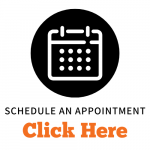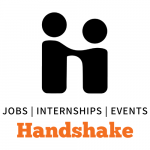Job Search Planning
Approximately 80% of hires are found through networking or making connections. Keep this in mind as you allocate time to your job search.
Information & Resources
You have 20 seconds to grab the attention of an employer with your resume. It is important to clearly and concisely demonstrate your unique knowledge, skills, and abilities. Your resume or CV (Curriculum Vitae) is what gives a potential employer a quick, concise, and information-rich picture of your skills and experience as they apply to the particular position for which you are applying.
New to creating effective resumes? Here are a few tips to get started:
- Begin with a “Everything and the Kitchen Sink” Document outlining all of your experiences and skills. This document can be as long as you need to capture all of your experiences.
- Think about accomplishments and contributions, not just job responsibilities. Write action statements that reflect what you did, how you did and why it was important for each experience.
- Edit and refine your document to one page to target specific positions. For most undergraduates or recent college graduates, a resume will be one page (two at the very most). In the U.S., a CV tends to be longer, covers more categories and is more appropriate when applying for academic positions. Internationally, sometimes the terms resume and CV are used interchangeably. Make sure to read your job, fellowship, or internship description carefully to see what length of document they are requesting.
- Review your documents more than once with help from Career Center. Remember: Your resume is the best reflection of you and your skills so spend some time re-editing and getting critical feedback!
Your cover letter is usually your first official introduction to an employer. Unlike your resume, your cover letter is written in a narrative style. This is your chance to showcase your writing skills, personality, and enthusiasm while highlighting the specific skills and experience that make YOU the right choice for the job. Employers will look for all of these things in your cover letter and use it as a key part of their overall assessment of you.
Depending on your major and interest areas, it may be helpful to have a portfolio to showcase some of your work. A professional portfolio is a career tool that can communicate and demonstrate an applicant’s knowledge, skills, abilities, and competencies with documented evidence of performance. Just as with a resume, there is no one right way to create a career portfolio. There are basic elements that should be included in every portfolio, such as a bio. But portfolios are also a reflection of an individual; therefore, portfolios should be tailored to the individual career goals of each person. Below are a variety of resources to help you develop a portfolio. You can schedule an appointment at the Career Center to review your portfolio with a professional staff member.
Art & Design - Rochester Institute of Technology - Portfolio Prep >
Marquette University Career Services Center - Portfolios >
Florida State University Career Center - Sample Portfolios >
Networking plays a critical role in a successful job and internship search, but is often overlooked.
With over 80 percent of job postings going unadvertised, it’s up to you to get out there, talk to employers and maintain personal connections. Networking and informational interviewing go hand-in-hand as your contacts can help you learn about careers in a particular field and industry as well as prepare you for what you might expect in your desired area of interest. If you’ve ever turned to a friend to ask them about their plans for the weekend, that’s an informational interview! More than just building your network, informational interviews are intentional and targeted.
To help you become more comfortable and confident with networking, review our resources below on making a LinkedIn profile, informational interviews.
Career Center L&C College Career Network Resource (LinkedIn) >
While your resume and cover letter can get you in the door, they’re only designed to get you to the next step – the job interview. This is where hiring decisions are made so preparing for your interview is critically important. While you cannot anticipate every question you will be asked, you can prepare for many of them.
For many applicants, the interview is the most stressful part of the entire job search process. But it’s also your opportunity to shine and stand apart from the crowd. Practice is key so schedule a Mock Interview with a Career Counselor to work out the kinks!
Career Center is located in room 270 of Fowler Student Center on the Undergraduate Campus.
MSC: 175
email careers@lclark.edu
voice 503-768-7114
Director Joe Hewa
Career Center
Lewis & Clark
615 S. Palatine Hill Road
Portland OR 97219


